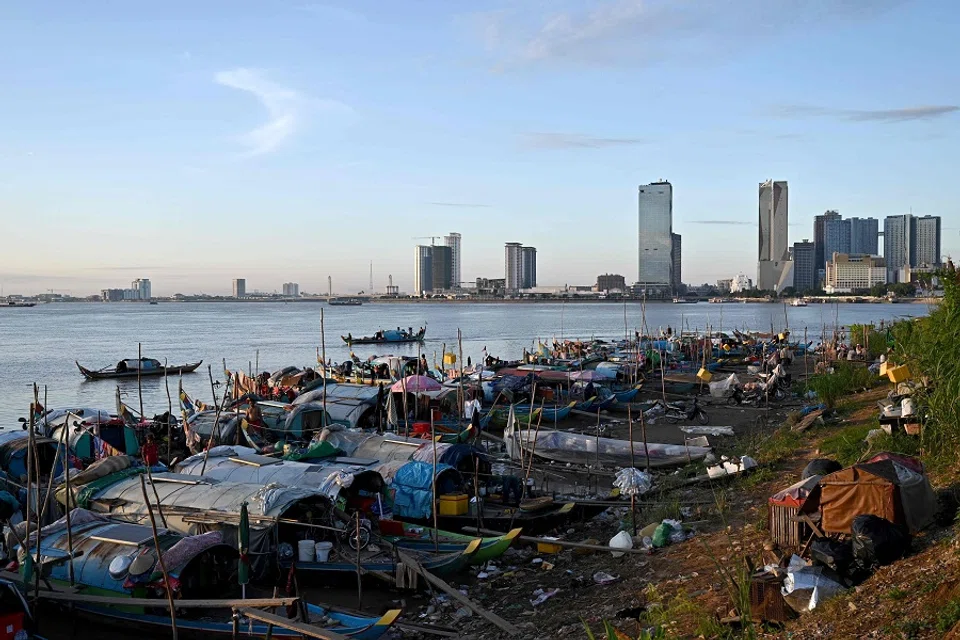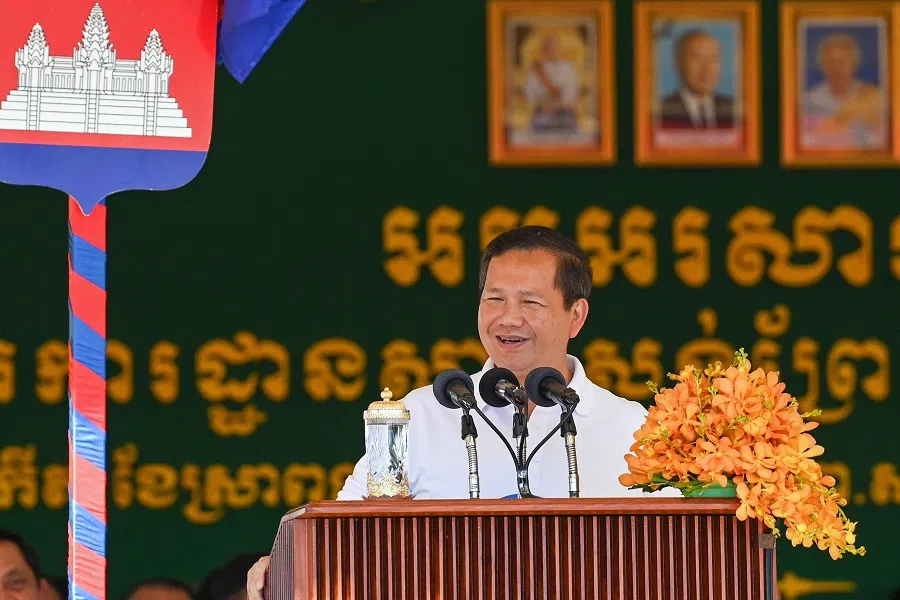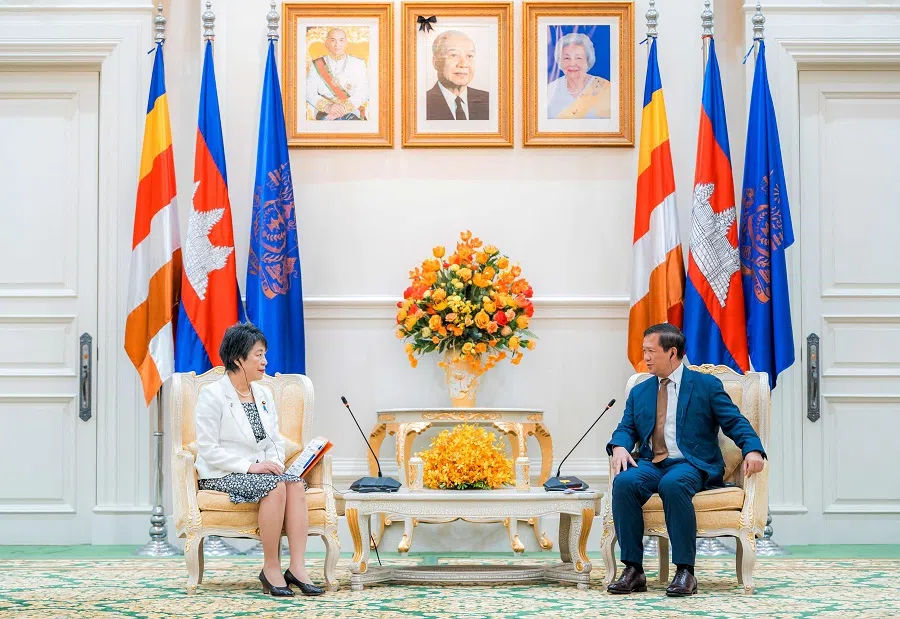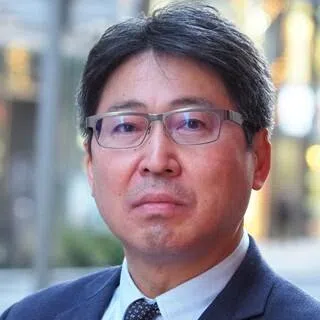Japan’s sensitive approach to cooperation with Cambodia
Japanese academic Shin Kawashima notes that Japan-Cambodia relations have grown in the past few decades, but there is still a way to go before Japan can match the US and China in contributing resources and assistance to Cambodia in areas such as security and economy.

Japan’s foreign policy is frequently criticised for only following that of the US. Indeed, Japan often moves in step with the US on security issues because of the US-Japan alliance, but in many other situations, it does pursue policies that differ from those of the US, such as energy diplomacy, economic diplomacy, and Asian diplomacy.
Also, unlike the US, Japan maintained friendly relations with Iran after the Iranian revolution in the 1970s, and it also took a different stance from the US on issues surrounding Cambodia during the same period, playing an important role in the Cambodian peace talks. China is well aware of this, and during the “honeymoon” period between Japan and China in the 1980s, China clearly opposed the Soviet Union and the US on the Cambodian issue, while taking the same stance as Japan.
Japan faces challenges in supporting large-scale infrastructure projects but continues to provide official development assistance (ODA) through the Japan International Cooperation Agency (JICA) and other organisations.
Japan vs China in Cambodia
Today, Cambodia has achieved remarkable economic development, with many saying that China’s support is behind this. Cambodia has no good feelings toward the US, and developed countries led by the US have not played as big a role as China in Cambodia’s infrastructure construction and other areas.
Japan faces challenges in supporting large-scale infrastructure projects but continues to provide official development assistance (ODA) through the Japan International Cooperation Agency (JICA) and other organisations. Its efforts include removing landmines and addressing the remnants of the civil war, contributing to peacebuilding. In a 2022 survey, 52% of Cambodian respondents identified Japan as an “important partner in the future”, while 71% chose China.

In August 2023, Hun Manet took office as Cambodia’s new prime minister, and adopted the Pentagonal Strategy (Phase I), which addresses the public, economic, financial, human and social capital, and environmental and climate change sectors. However, no significant changes in foreign policy were observed. Military cooperation with China remains active, and Cambodian naval bases and airports have been built with Chinese assistance.
Answering call of US and allies too
In recent years, there have been notable changes in Cambodia’s foreign policy amid the regime transition. For instance, Cambodia supported the US-backed UN resolution condemning Russia’s invasion of Ukraine, demonstrating its opposition to Russian actions. Additionally, this year has seen positive shifts in US policy toward Cambodia, with expanded diplomatic relations and cooperation.
China also attaches importance to Cambodia, appointing former foreign affairs ministry spokesperson Wang Wenbin as Chinese ambassador to Cambodia.
It is apparent that Japan’s cooperation with Cambodia is by no means exploitative, but shows commitment to resolving Cambodia’s issues.
In December 2023, Hun Manet visited Japan. At a summit with Japanese Prime Minister Fumio Kishida, they reached an agreement to advance cooperation in the security field, and Cambodia also reportedly proposed setting up a special economic zone for Japanese companies. Then, in July 2024, Japanese Foreign Minister Yoko Kamikawa visited Cambodia and proposed the “three new approaches to cooperation”, which Cambodia also supported.

These approaches comprise social infrastructure development according to development stage; maritime connectivity; and the Japan-Cambodia Landmine Initiative. While the policy inherits Japan’s previous cooperation with Cambodia, it is in line with the new Cambodian prime minister’s Pentagonal Strategy.
Non-exploitative ways of Japan
It also includes cooperation in water supply and sanitation such as the “Miracle of Phnom Penh”, building a sustainable digital society, and port development, including human resource development.
The two sides also agreed to cooperate on mine clearance in third countries outside of Cambodia, a collaboration that aligns with Cambodia’s rising national strength.
It is apparent that Japan’s cooperation with Cambodia is by no means exploitative, but shows commitment to resolving Cambodia’s issues. The two sides also agreed to cooperate on mine clearance in third countries outside of Cambodia, a collaboration that aligns with Cambodia’s rising national strength.
No doubt, these proposals take into account China’s existence, and one can say they are in line with Japan’s capabilities and Japanese characteristics. How Cambodia sees this new approach and what results the two countries achieve, including the cooperation process, will be the focus of attention for both nations moving forward.



![[Big read] When the Arctic opens, what happens to Singapore?](https://cassette.sphdigital.com.sg/image/thinkchina/da65edebca34645c711c55e83e9877109b3c53847ebb1305573974651df1d13a)

![[Video] George Yeo: America’s deep pain — and why China won’t colonise](https://cassette.sphdigital.com.sg/image/thinkchina/15083e45d96c12390bdea6af2daf19fd9fcd875aa44a0f92796f34e3dad561cc)